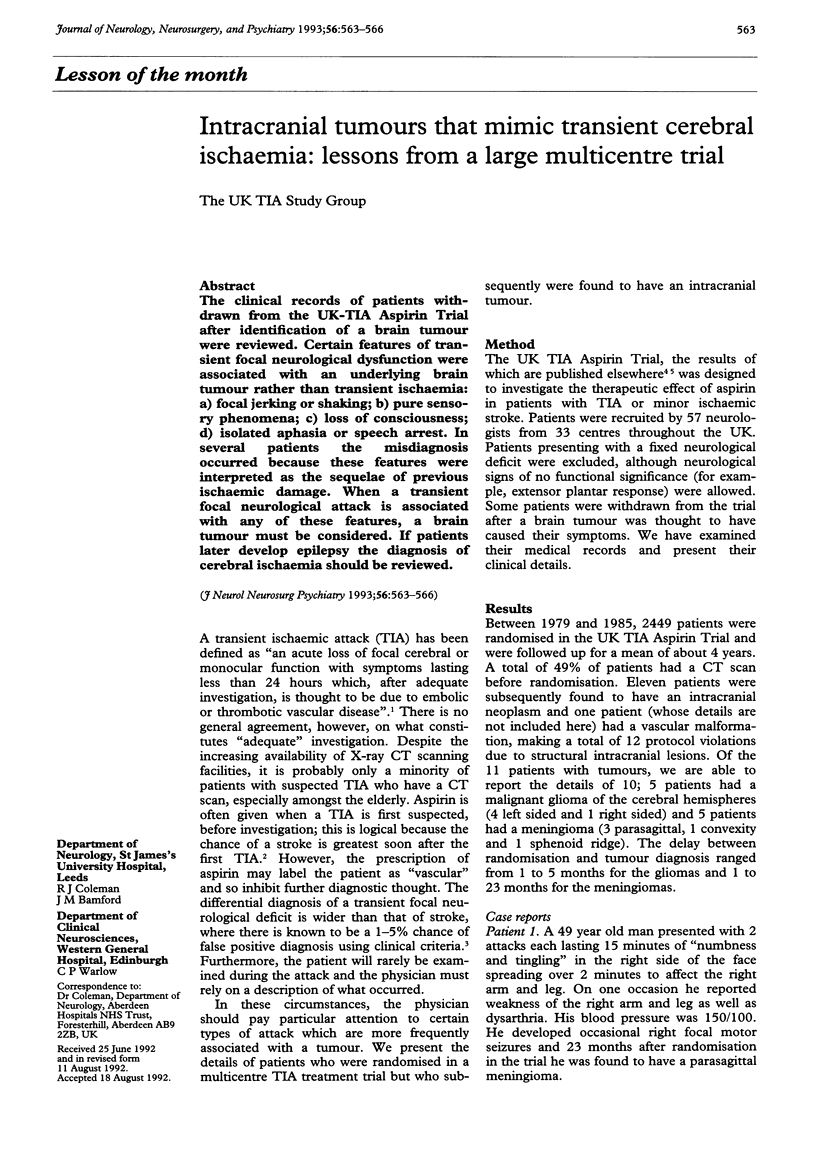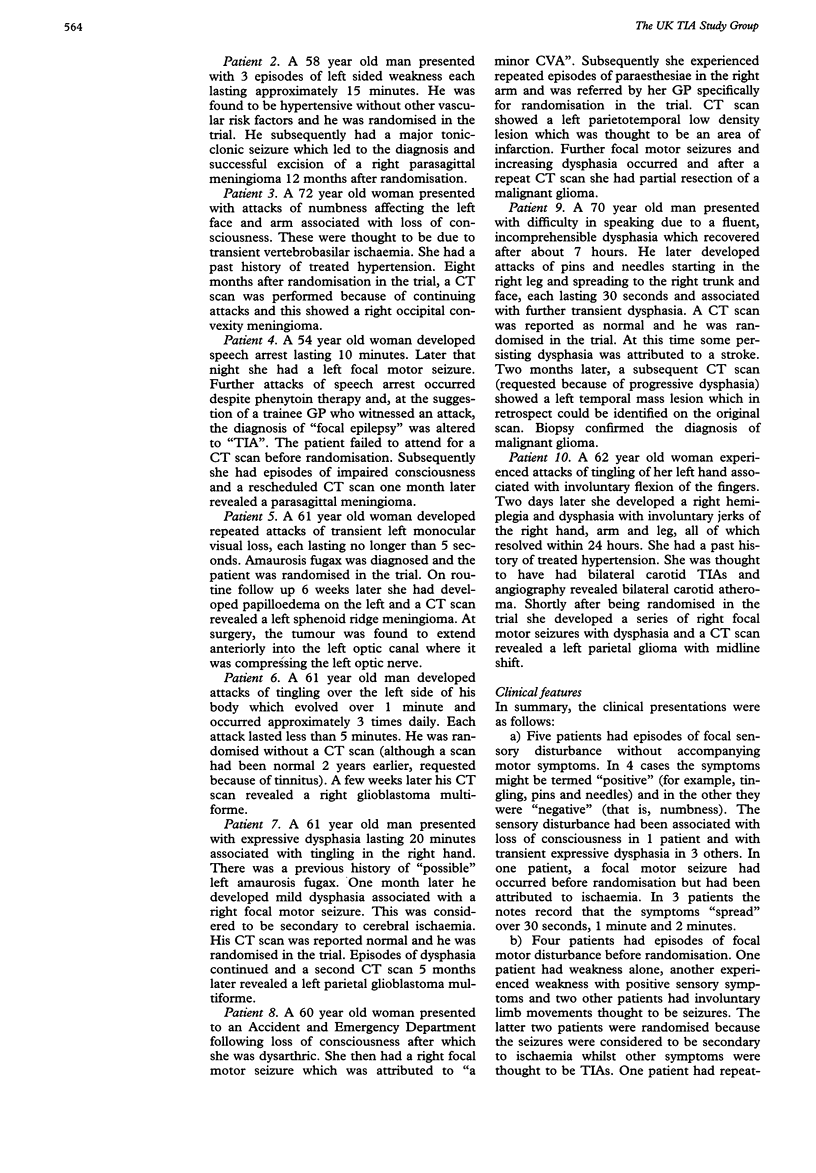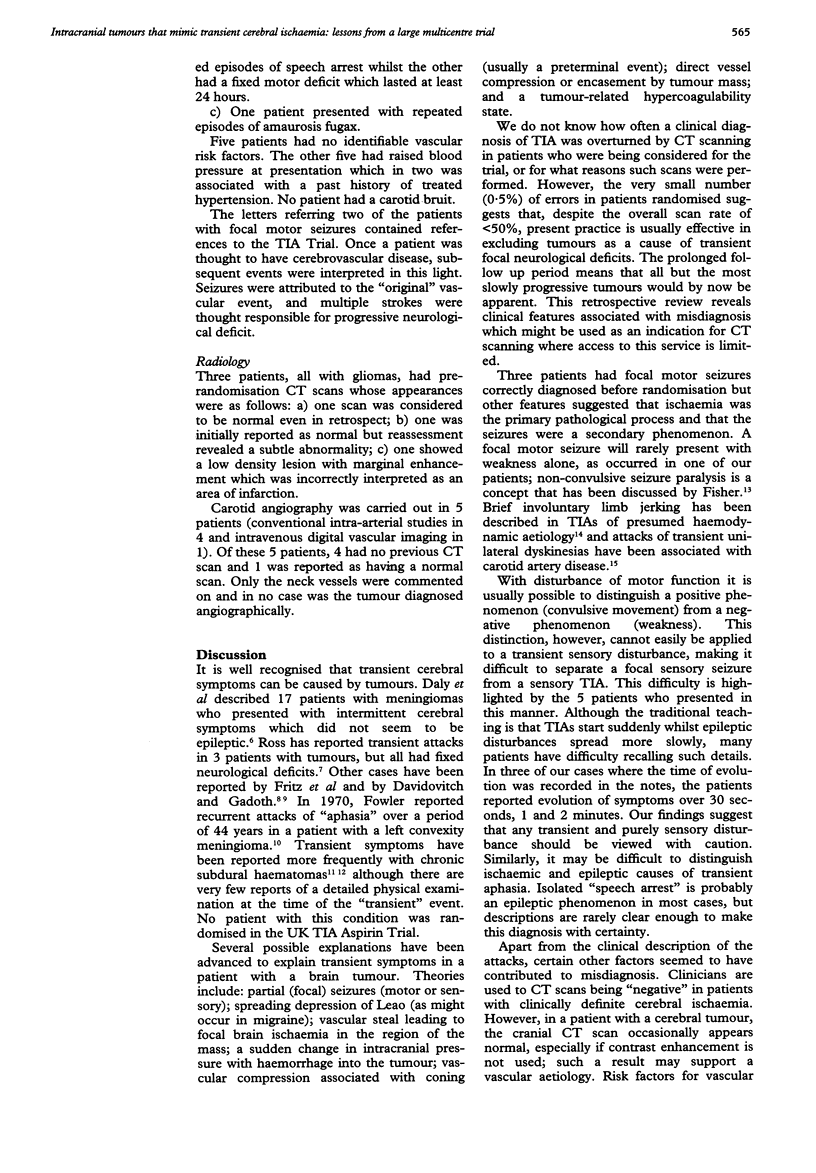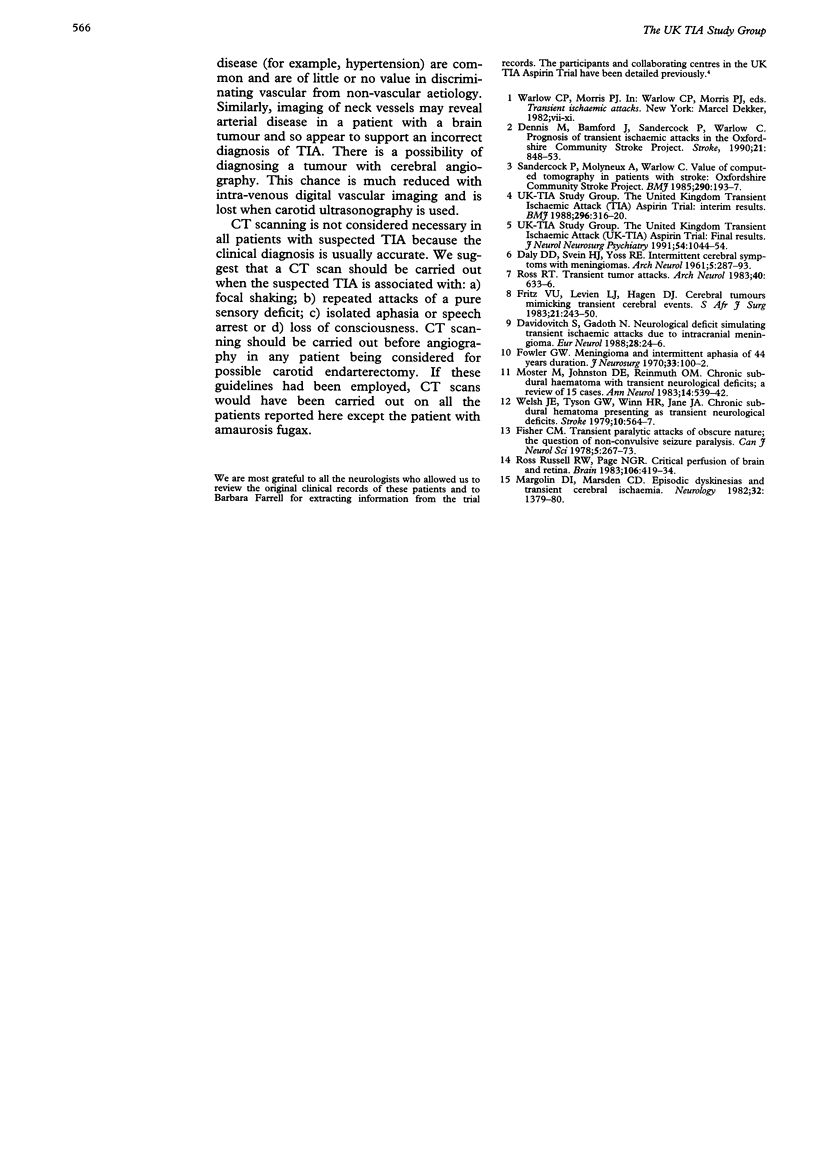Abstract
The clinical records of patients withdrawn from the UK-TIA Aspirin Trial after identification of a brain tumour were reviewed. Certain features of transient focal neurological dysfunction were associated with an underlying brain tumour rather than transient ischaemia: a) focal jerking or shaking; b) pure sensory phenomena; c) loss of consciousness; d) isolated aphasia or speech arrest. In several patients the misdiagnosis occurred because these features were interpreted as the sequelae of previous ischaemic damage. When a transient focal neurological attack is associated with any of these features, a brain tumour must be considered. If patients later develop epilepsy the diagnosis of cerebral ischaemia should be reviewed.
Full text
PDF



Selected References
These references are in PubMed. This may not be the complete list of references from this article.
- DALY D. D., SVIEN H. J., YOSS R. E. Intermittent cerebral symptoms with meningiomas. Arch Neurol. 1961 Sep;5:287–293. doi: 10.1001/archneur.1961.00450150053007. [DOI] [PubMed] [Google Scholar]
- Davidovitch S., Gadoth N. Neurological deficit-simulating transient ischemic attacks due to intracranial meningioma. Report of 3 cases. Eur Neurol. 1988;28(1):24–26. doi: 10.1159/000116222. [DOI] [PubMed] [Google Scholar]
- Dennis M., Bamford J., Sandercock P., Warlow C. Prognosis of transient ischemic attacks in the Oxfordshire Community Stroke Project. Stroke. 1990 Jun;21(6):848–853. doi: 10.1161/01.str.21.6.848. [DOI] [PubMed] [Google Scholar]
- Fisher C. M. Transient paralytic attacks of obscure nature: the question of non-convulsive seizure paralysis. Can J Neurol Sci. 1978 Aug;5(3):267–273. doi: 10.1017/s0317167100024331. [DOI] [PubMed] [Google Scholar]
- Fowler G. W. Meningioma and intermittent aphasia of 44 years' duration. Case report. J Neurosurg. 1970 Jul;33(1):100–102. doi: 10.3171/jns.1970.33.1.0100. [DOI] [PubMed] [Google Scholar]
- Fritz V. U., Levien L. J., Hagen D. J. Cerebral tumours mimicking transient cerebral events. Case reports. S Afr J Surg. 1983 Dec;21(4):243–250. [PubMed] [Google Scholar]
- Margolin D. I., Marsden C. D. Episodic dyskinesias and transient cerebral ischemia. Neurology. 1982 Dec;32(12):1379–1380. doi: 10.1212/wnl.32.12.1379. [DOI] [PubMed] [Google Scholar]
- Moster M. L., Johnston D. E., Reinmuth O. M. Chronic subdural hematoma with transient neurological deficits: a review of 15 cases. Ann Neurol. 1983 Nov;14(5):539–542. doi: 10.1002/ana.410140508. [DOI] [PubMed] [Google Scholar]
- Ross R. T. Transient tumor attacks. Arch Neurol. 1983 Oct;40(10):633–636. doi: 10.1001/archneur.1983.04050090069011. [DOI] [PubMed] [Google Scholar]
- Russell R. W., Page N. G. Critical perfusion of brain and retina. Brain. 1983 Jun;106(Pt 2):419–434. doi: 10.1093/brain/106.2.419. [DOI] [PubMed] [Google Scholar]
- Sandercock P., Molyneux A., Warlow C. Value of computed tomography in patients with stroke: Oxfordshire Community Stroke Project. Br Med J (Clin Res Ed) 1985 Jan 19;290(6463):193–197. doi: 10.1136/bmj.290.6463.193. [DOI] [PMC free article] [PubMed] [Google Scholar]
- Welsh J. E., Tyson G. W., Winn H. R., Jane J. A. Chronic subdural hematoma presenting as transient neurologic deficits. Stroke. 1979 Sep-Oct;10(5):564–567. doi: 10.1161/01.str.10.5.564. [DOI] [PubMed] [Google Scholar]


